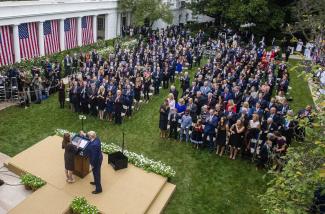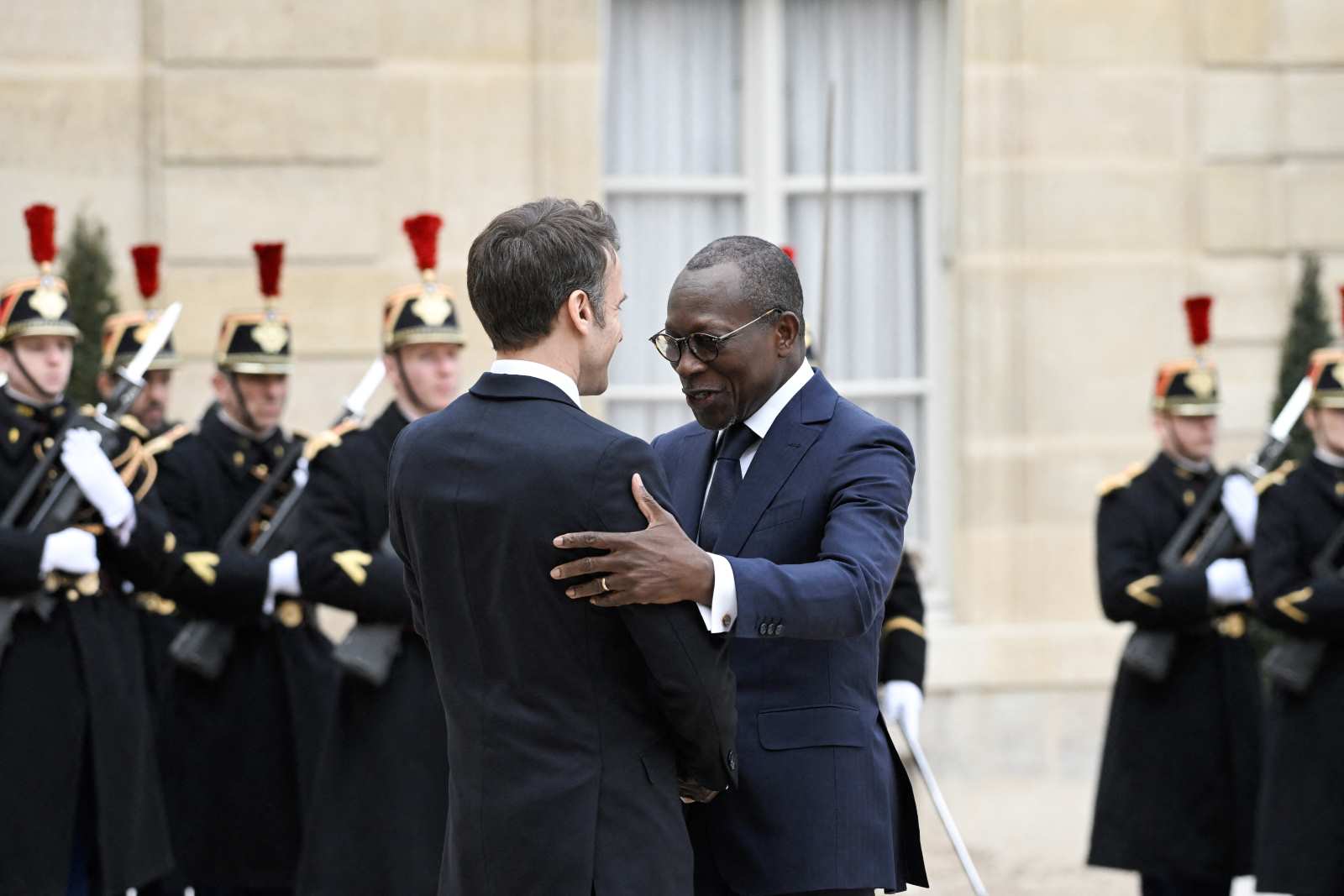US elections
Kleptocracy and authoritarianism

Trying to pay attention to the election campaign in the USA has begun to feel like a full-time job. Things are developing very fast, and we cannot really process the information. One week ago, we learned that President Donald Trump pays very little taxes. That means that he is either a very lousy business man or excels at tax evasion. Most likely, both is true.
Public attention was distracted from the tax issue on Tuesday night. The president misbehaved badly during the TV debate. He not only failed to spell out policies he wants to implement, he also did not let Joe Biden, his opponent, make any coherent argument. Asked to disown white-supremacists, moreover, all Trump managed to do was to tell the “Proud Boys”, a right-wing outfit, to “stand back and stand by”. By adding immediately that someone had to do something about left leaning protests, he indicated that proud-boy violence might be required in that context. No, he did not disown right-wing extremists at all.
Public attention shifted again on Friday last week when it became known that Trump tested positive for Covid-19. The information provided by his administration is confusing. He is getting medication that only critically ill people should get, but we are also told that he is fine and may even return to the White House today. He went to a fund-raising event on Thursday, moreover, when he knew, at very least, that we was quite likely to have caught the disease or was already aware of being infected himself. He put people who paid up to $ 250,000 to support him at risk of infection.
We do not know when the president showed the first symptoms, how bad his case is and who he has been in personal contact with. The official information is vague. In view of the president’s many lies, people do not trust his administration anymore.
The plain truth is that it does not have a track record of following its own rules concerning mask wearing and social distancing. On Saturday 26 September, a White House ceremony to celebrate the nomination of Amy Coney Barrett to the Supreme Court obviously became a corona-virus spreading event. Several of those who attended have since tested positive, including the president, his wife, two senators, a former governor and others. An irony of the matter is that they all are Republicans, claim to be pro-life and have a habit of emphasising personal responsibility.
For months, Trump has downplayed the pandemic and ridiculed people who wear masks. As a result, the USA, which does not even have five percent of the world population, now accounts for more than 20 % of the global infections as well as 20 % of the dead. This is not the kind of world leadership Trump promised. He does not protect the nation, he does not protect his closest allies and he failed to even protect himself.
The scenario is mind-boggling. Apparently, some powerful interests keep backing Trump in spite of evident failure. The big question is why?
To understand that, we must step back and neglect breaking news for a moment. I think Martin Sandbu of the Financial Times spelled out an important insight in mid-September (paywall). According to him, the authoritarian leanings of right-wing populists serve kleptocratic interests:
“Autocracy and kleptocracy – the capture of political power for the purposes of theft and embezzlement – often go together. They advance by similar methods: secrecy through misinformation and confusion, dismantled accountability, manipulated law-making and governing, and capture of law enforcement. It is a mistake to treat the two as separate dangers, let alone one as less harmful than the other. Autocracy is often merely the means; kleptocracy is the ultimate end.”
Some very rich people want governments to be weak. They neither want to pay taxes, nor do they want to accept regulations. They do not need public infrastructure or social protection. In their eyes, they should be able to use their enormous wealth to buy whatever they want. To them, any kind of governance amounts to restricted freedom. And no, they do not want to consider environmental problems.
Last year, a report published by the Transnational Institute, a left-leaning think tank, made similar arguments. The authors pointed out why oligarchic billionaires, who hide their fortunes in tax havens and want to disable governments, support right-wing populists and resent supra-national organisations. They do so because emphasising national sovereignty leads to weak governments that are easy to influence. In today’s world, strong regulations increasingly depend on global cooperation. That is the only way to promote the public good, but it hurts the interests of oligarchic anarchists.
No doubt, many plutocrats appreciate what Trump does. Biden would try to strengthen governance the way that Barack Obama did. Trump, by contrast, has made the US government weaker, and he is doing his best to weaken international cooperation. They do not mind his lies, as long as their interests are served. His recklessness does not bother them either. Many of Trump’s financial backers probably believe they can still control should he start going too far. That is a mistake as the carelessness with which he has exposed some of them to infection risks clearly shows.














